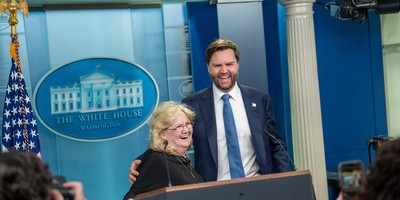The road from the industrial revolution and to our lives today was paved by innovation. Innovation propelled by fossil fuels, expanded trade routes, and new marketplaces allowed humankind to improve all aspects of life rapidly after centuries of stagnation.
Yet, a pernicious belief is spreading throughout the developed world. The idea that industrialization, technological advancement, and economic success must be stamped out because it is a moral and social wrong. In fact, Pope Francis recently went so far as to say that the increased use of air-conditioning is an example of a harmful habit of consumption.
The Pope’s nearly 200 page encyclical, “On Common Care for Our Common Home,” is a rambling and disjointed vilification of the technological advancements – driven in large part by fossil fuels – that have made human life markedly better. In one breath Pope Francis calls for widespread deindustrialization to save our common home; with his next breath he pleads for elevation of the poor.
Poverty cannot be eliminated without innovation and industry. Innovation and industry cannot be sustained on solar and wind energy generation, and certainly not without fossil fuels. And importantly, no one wants to live in the South without air-conditioning.
The Clean Power Plan (CPP), as proposed by the EPA, is designed to reduce CO2 emissions from the electric sector and will cost well over $479 billion dollars over the next 15 years. In exchange, EPA admits that the CO2 reductions are estimated to reduce predicted warming by less than 0.02ºC. When asked before Congress what justification could be given for such an oppressive and onerous burden, EPA’s Administrator offered that the real value of the CPP is measured in “showing strong domestic action, which can actually trigger global action…”
Recommended
The European experience with renewables, specifically Germany’s and the U.K.’s rush to adopt wind generation, should be a lesson to America and other developed countries. German families are now forced to burn wood chips imported from Texas, releasing genuine pollutants like carbon monoxide and particulate matter directly into their homes, while increasing CO2 emissions. Why? Because the German people can no longer afford electricity at rates that are double and triple what they were before German leaders insisted on going “green.”
In truth, the rush to clean energy, green energy, renewable energy, or whatever marketing term you favor, will harm those in the lowest socioeconomic levels the most. The CPP will affect minorities and many of our elderly disproportionately. Statistically these groups have lower incomes to begin with, forcing them to spend a proportionately higher amount of their monthly incomes on energy and food. Increases in either, which the CPP will undeniably bring about, exact greater harms on those who have little to no ability to absorb the cost.
If electricity prices increase worldwide, so be it. If food prices skyrocket and supply dwindles, too bad. Will a warm glow of pride in progressive energy policies be sufficient to keep the poorest among us actually warm? Will eliminating fertilizers derived from fossil fuels sate hunger? Yet ivory tower environmentalists continue to insist they know better – to them our needy can eat cake.
Condemning the current culture of relativism as encouraging the manipulation and abuse of others, Pope Francis wrote, “[t]he same kind of thinking leads to the sexual exploitation of children and abandonment of the elderly… It is also the mindset of those who say: Let us allow the invisible forces of the market to regulate the economy, and consider their impact on society and nature as collateral damage.”
But market interventions designed to benefit the environment and mandate a specific fuel mix cost billions and provide negligible, infinitesimal, or counterproductive environmental benefits. If the Pope is looking for exploitation or abandonment he need look no further that the Clean Power Plan; this is a plan he would no doubt support as being an environmental boon, though it is a plan with a deeply ingrained mistrust of markets and the belief that in the fight against “global warming” any cost, be it currency or human life, is worth it.
Coal and natural gas are cheap in the U.S. and provide energy densities that far surpass that of biofuels and other renewables. The end result is that fossil fuels are not only affordable, but also reliable. As my colleague and former Chair of TCEQ, Kathleen Hartnett White, has pointed out, “[f]ossil fuels have shrunk the human footprint on the magnificent natural world.” In fact, solar facilities, occupy up to 5000 acres of formerly natural ecosystems, vastly enlarging man’s energy footprint.
The human costs of mandating a switch should not be discredited so blithely by anyone. The real “social cost of carbon” is not the danger of not eliminating man-made CO2, but rather the human cost of pushing the U.S. and other developed countries towards renewable electric generation before the technology is supportable.
Humanity will not enter the “Renewable Age” for lack of fossil fuels; it will enter it when legitimate, cost effective, and reliable renewable energy sources can be competitive in a free market. Until then, the Renewable Age is a reversion to the pre-industrial era when human life was far poorer, painful, and short.
























Join the conversation as a VIP Member